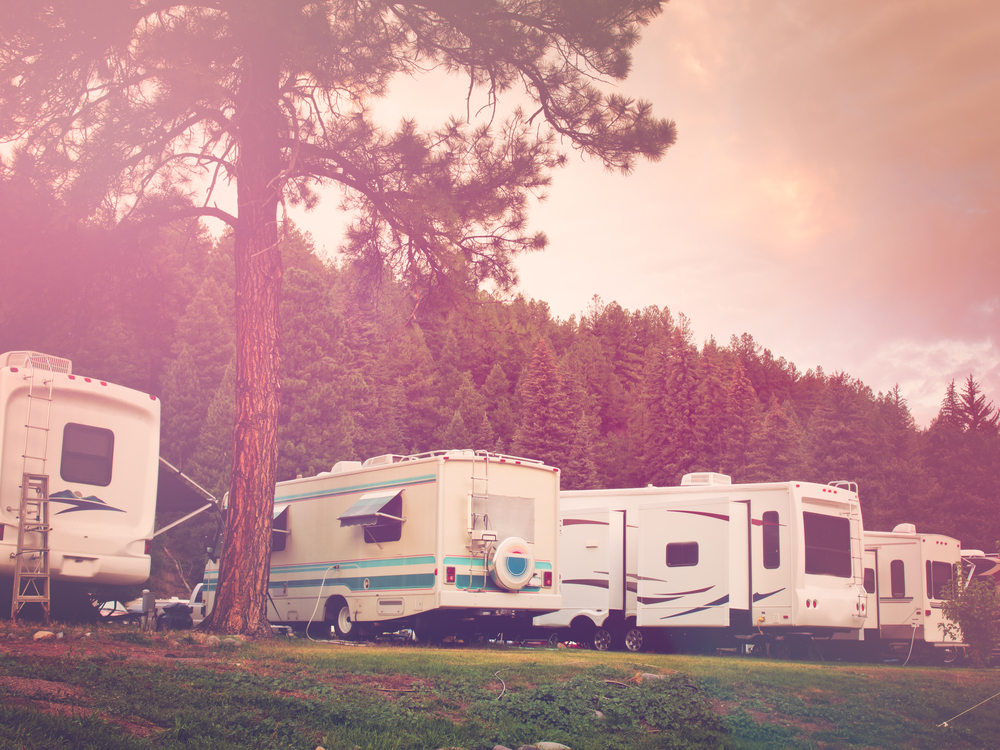
What Does RV Insurance Include and Do I Need It If I Have Auto Insurance?
Wednesday, October 25, 2017
You bought the RV because you wanted the freedom to travel and explore. While these vehicles can be a lot of fun, they’re also a large investment. As such, you should treat your RV just like a car or your home. What does this mean? You need to get RV insurance.
This isn’t a suggestion. RV insurance is a requirement before you hit the road – just like you’re required by law to have car insurance on your automobile. So, let’s dive in and learn the ins and outs of RV insurance, which types of coverage options you can get, and more.
What is RV Insurance?
First and foremost, what is RV insurance? Well, that’s simple. RV insurance is a type of coverage designed for motorhomes and other recreational vehicles. However, things are a little bit more complex than that.
For example, RV insurance can vary based on the type of motorhome, classification, how often you drive or live in it, and a host of other factors. As well, each state has different motorhome insurance laws. So, just because you’re covered in one state doesn’t necessarily mean you’ll be all set in another one.
Coverage Options & Types
So, we need to discuss RV insurance coverage options and the different types. This begins by detailing RV classifications for insurance purposes. RVs can be classified as:
- Class A
- Class B
- Class C
Class A vehicles tend to be the larger motorhomes that people can live in. These include luxury coach vehicles, motor coaches, and converted buses. Class A RVs can be up to 75” in length.
Class B motorhomes tend to be the smallest classification. Class B RVs include travel trailers, camper vans, and more.
Class C RVs tend to use a standard cargo van as the driving piece of the vehicle. Then the camper area usually extends over the cab space. One example of a Class C vehicle is a fifth wheel vehicle.
Now, there’s a little more to RV classifications than this. For most, a quick call to their insurance agent can clear up what class of RV they own. Once you have this information dialed in, finding the ideal coverage type will be much easier.
The basics generally are this: if your recreational vehicle needs a car to tow it, then you probably don’t need RV insurance. If the vehicle can drive itself, then you definitely need an RV policy.
What’s Included?
Every RV insurance policy will be different, especially when you factor in location and different vehicles. Next, each coverage option will vary on what’s covered and what isn’t. To begin, let’s look at liability coverage – which is required in nearly every state.
Liability insurance helps protect you against damages done to property and other people when driving your RV. You cannot legally hit the road without this coverage in most states.
For certain RV drivers, this is where the buck stops, but other vehicle owners opt for further coverage, including:
- OTC (other-than-collision): this coverage will help protect you from non-collision related damages to your motorhome.
- Collision: If you get into a crash, your vehicle will be covered – whether it’s your fault or not with collision coverage.
- Roadside Assistance: Many RV owners also tag on roadside assistance with their policy. Why? Because RVs are big vehicles with a lot of moving parts. Things can go wrong. When they do, you don’t want to be stranded.
Do You Need It If You Have Auto Insurance?
We’ve talked briefly about when you don’t need RV insurance in this article. Certain prospective RV owners may be curious if their car insurance covers them. Let’s make things quick and simple: no.
If your recreational vehicle can drive itself, you’ll need a separate RV insurance policy for it. However, in rare instances, you can get coverage for a converted car or truck with an auto insurance policy and save some money. This is an exception to the rule, and not common.
What Does RV Insurance Include and Do I Need It If I Have Auto Insurance?
RV insurance can typically include anything a regular old car insurance policy can. It all depends on how much you use the vehicle, the type of RV, and where you live. Overall, you will need a policy, whether you have car insurance or not. Plus, with the price of many RVs these days, it would be unwise not to get as much coverage as possible.
